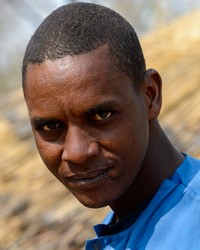Fulani, Adamawa in Gabon

Photo Source:
Copyrighted © 2026
Anton Ivanov - Shutterstock All rights reserved. Used with permission |
Send Joshua Project a map of this people group.
|
| People Name: | Fulani, Adamawa |
| Country: | Gabon |
| 10/40 Window: | No |
| Population: | 26,000 |
| World Population: | 3,676,000 |
| Primary Language: | Fulfulde, Adamawa |
| Primary Religion: | Islam |
| Christian Adherents: | 0.08 % |
| Evangelicals: | 0.08 % |
| Scripture: | Complete Bible |
| Ministry Resources: | Yes |
| Jesus Film: | Yes |
| Audio Recordings: | Yes |
| People Cluster: | Fulani / Fulbe |
| Affinity Bloc: | Sub-Saharan Peoples |
| Progress Level: |
|
Introduction / History
In the 1800s, Modibo Adama, a scholar and Muslim holy warrior, led a jihad in what is now Cameroon and Nigeria, opening the region up to Fulani colonization. He continued his campaign, eventually conquering many villages and founding his own empire, which he named Adamawa after himself. His Fulani people established Islam as the religion in the region. New converts learned classical Arabic in order to study the Koran. To support themselves, the people raised cattle on land that was once forested.
In general, the Fulani peoples are located in an almost horizontal strip across West Africa. The Sahara Desert forms their northernmost boundary, while the threat of tsetse flies controls their movement to the south. The Fulani tribes are grouped and named according to their locations, occupations, and dialects. The Adamawa Fulani are the group of Fulani who live in Nigeria's Adamawa Province. Some live in Cameroon, Chad, Gabon, and Sudan. There are also a small number in Cape Verde.
What Are Their Lives Like?
For hundreds of years the Fulani people have been nomadic shepherds and cattle herders. They sometimes farm, but they much prefer to tend livestock. They judge one another's status by the number of cattle they own.
What Are Their Beliefs?
The 1500s was a time when the first Fulani became Muslim, but they didn't have a full movement to Islam until the 1800s. As often has happened in Islamic history, this movement came as the result of military activity. The Fulani are actually folk Muslims, meaning that they blend traditional religion with Islam. They seek to control the spirit world through animal sacrifices and by wearing fetishes.
The Fulani have their own unique moral code that combines virtues, which they call "The Fulani pathway." The dominant trait involves having an intimate understanding of Fulani language and culture. They also value patience, self-control, discipline, modesty, respect for others, wisdom, courage, and hard work.
What Are Their Needs?
Like the other Fulanis, the Fulanis in Gabon need to understand that it is essential to embrace the lordship of Jesus Christ. Many believe they have all they need, but like the people of Sardis, they are "wretched, miserable, poor, blind, and naked," without an ability to see the Lord.
Prayer Points
Traditionally the Fulani have been spiritually resistant. Pray for spiritual openness to the lordship of Jesus Christ.
Pray that efforts by mission agencies in countries where the Fulani live will affect the Fulanis in Gabon.
Pray for a disciple making movement among the Fulani throughout West Africa.
Pray that the few Fulani believers will shine like the sun before their Muslim neighbors so that others will give Christ the honor He is due.